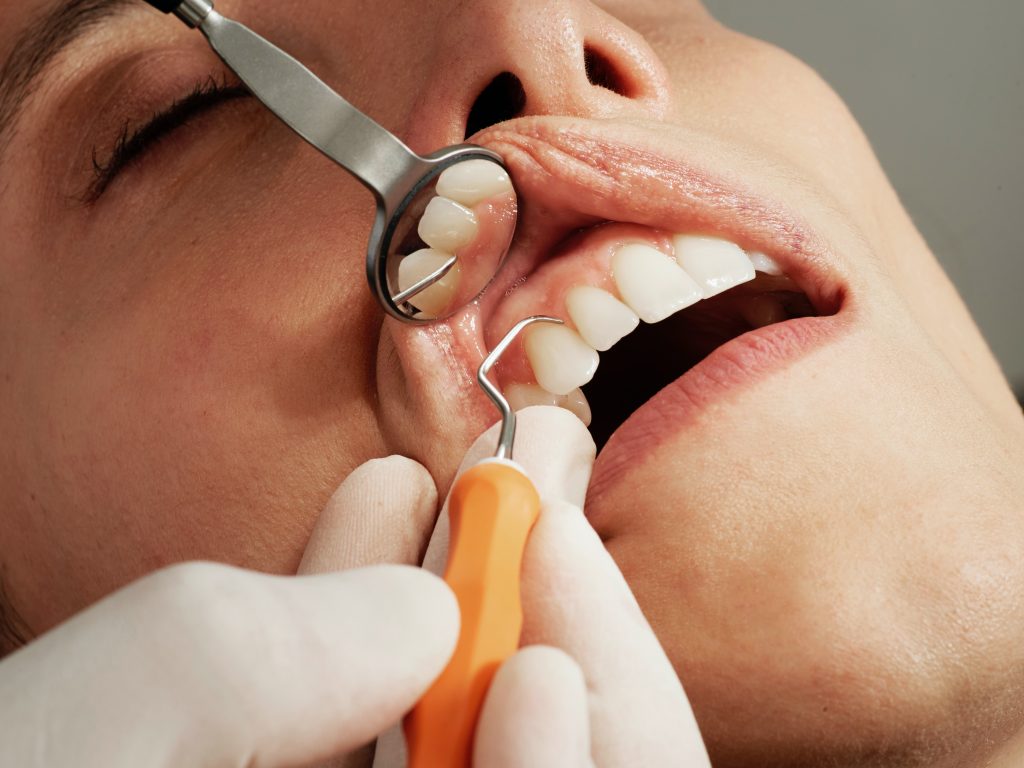Diş eti hastalığı tedavisi

Diş eti hastalıklarının belirtileri nelerdir?
Genel olarak, periodontitis/gingivitis semptomları şunları içerebilir:
Kolay kanayan diş etleri
Hassas ve kırmızı diş etleri
Sürekli ağız kokusu
Sallanan dişler
Diş eti çekilmesi
Diş eti hastalıklarının tedavisi yapılmazsa bir veya birkaç dişin kaybına ve ağız yapısının tamamen zayıflamasına neden olabilir.
Diş eti tedavisi nasıl yapılır?
Tedavi genellikle diş ve diş etlerinde birikmiş olan plakları ve diş taşlarını gidermek için diş taşı temizliğinin yapılmasıyla başlar. İleri vakalarda bu anestezi altında yapılır.
Tedaviye gerekli görülürse yumuşak doku greftleri, kemik doku greftleri, cep küçültme tedavisi ve diğer cerrahi ve cerrahi olmayan tedaviler eklenebilir.
Diş taşı tedavi sonrasında hassasiyet oluşması normal midir?
Tedavinizden sonra dişlerinizin birkaç gün soğuk ve sıcaktan etkilendiğini ve sızladığını hissedebilirsiniz. Diş etleriniz iyileştikçe bu hassasiyet geçecektir. Dişlerinizi ve diş etlerinizi uzun vadede sağlıklı tutmak için düzenli olarak 6 ayda bir randevu almayı aksatmayın.
Diş taşı temizliği ne sıklıkla yapılmalıdır?
Diş taşı temizliği 6 ayda bir yapılmalıdır.
Diş taşı temiliği dişlerim zarar verir mi?
Hayır, toplumda oluşan algının tam tersine düzenli olarak muaynelerin yapılması ve gerekli olduğunda diş taşı temizliği uygulanmalıdır.
